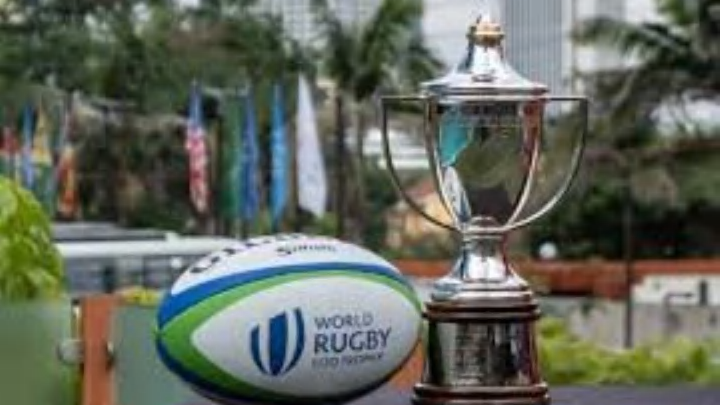New Qualification Format Unveiled for Men's Rugby World Cup 2027

By Priscilla Rotich
World Rugby has verified the updated qualification procedure for the 2027 Men's Rugby World Cup, which aims to provide teams with more preparation time and greater opportunities to participate in the prestigious event.
Before the draw is conducted in January 2026, all 24 teams for the expanded tournament will be known, with 12 qualifiers joining the 12 teams that secured their spots in Australia at the last event.
France, New Zealand, Italy, Ireland, South Africa, Scotland, Wales, Fiji, Australia, England, Argentina, and Japan have all secured their places by finishing in the top three of their respective pools in France 2023.
Sir Bill Beaumont, the chairman of World Rugby stated that they are dedicated to upholding the core principle of increased opportunity. The combination of current regional tournaments, new interregional competitions, and a final qualification process demonstrates this goal.
“It is our desire for the process to qualify teams into the first iteration of the Nations Championship Division 2, which begins in 2026. This has the major advantage of ensuring that all teams will have strong, high-level competition and preparation ahead of Rugby World Cup 2027, raising standards globally,” said Beaumont.
World Rugby CEO Alan Gilpin explained the expansion of RWC 2027 and the qualification process.
RWC 2023 was the first to include three South American teams in Argentina, Uruguay, and debutants Chile. Now, the region will have its direct qualifier spot instead of competing with the USA and Canada for the previously named Americas 1 and 2.
Similarly, Asia will now have more representation, with the 2025 Asia Rugby Championship winners directly qualifying for Australia 2027, potentially including the likes of Korea Hong Kong China.
The winners of the Rugby Africa Cup will continue to qualify, and new contenders like Zimbabwe and Ivory Coast will seek to earn their place alongside long-standing representatives Namibia and South Africa.
For the first time in Rugby World Cup history, there was no North American representation at France 2023. This is set to change at the next event, as the World Rugby Pacific Nations Cup will serve as the qualification tournament.
With Fiji and Japan already qualified, Samoa, Tonga, USA, and Canada will compete for the remaining three designated Pacific places. The Pacific Nations Cup 2025's bottom-ranked team will vie for a playoff place with the Sudamerica Rugby Championship 2025 runners-up.
Europe will have four automatic places this time, with only results from the 2025 Rugby Europe Championship counting towards qualification. Reaching the semi-finals will be sufficient to secure a place in Australia for countries like Georgia, Portugal, Romania, and potentially Spain.
The format for Rugby World Cup 2027 will include six pools of four teams, along with a round of 16 before the quarter-finals, reducing the tournament window from seven to six weeks.
The qualification process might also determine which teams will participate in the inaugural Nations Championship Division 2 in 2026.
Sir Beaumont commented: “This qualification process is on the side of growth and sustainability for the game as a whole.”
“We are fully committed to respecting the fundamental principle of expanded opportunity, and the blend of existing regional competitions, new cross-region competitions, and a final qualification process reflects that ambition,” said Beaumont.
“Providing certainty to the unions in pursuit of the Australian dream will help teams fine-tune their preparations and provide fans with an exciting road to Rugby World Cup 2027 next year where all places will be up for grabs,” he added.
